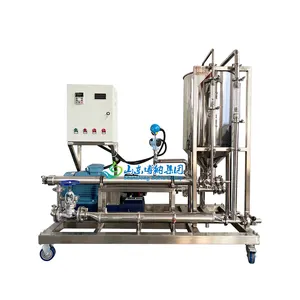
Sanitary Single Cartridge Filter Microporous Water Drinks Cartridge Filter Housing With Stainless Steel TC End





Filter proteins play a pivotal role in a variety of laboratory settings, serving as essential components in the purification and analysis processes. These proteins are integral to the separation of specific molecules from complex mixtures, making them invaluable in both research and clinical environments.
The landscape of filter proteins is diverse, with each type tailored to suit different scientific needs. Affinity proteins, for example, are designed to isolate and purify a specific substance from a mixture, while dialysis proteins are used to remove small, unwanted molecules from larger protein solutions. In the realm of diagnostics and therapeutic research, these proteins are indispensable for the accurate analysis of complex biological samples.
Filter proteins are characterized by their selectivity and specificity. They are typically composed of materials that ensure stability and functionality under a variety of conditions. The construction of these proteins often involves synthetic or semi-synthetic materials that are engineered to exhibit high affinity for the target molecule.
The utilization of filter proteins in laboratories offers numerous advantages. Their precision enhances the reliability of experimental results, while their efficiency can significantly reduce the time required for sample processing. Moreover, the versatility of filter proteins allows for their application across a broad spectrum of scientific disciplines, from biochemistry to molecular biology.
When selecting filter proteins, it is crucial to consider the specific requirements of the application, such as the nature of the target molecule and the conditions of the experiment. Factors like binding capacity, flow rate, and compatibility with other lab equipment are also important to ensure optimal performance.
Beyond filter proteins, laboratories require a comprehensive array of equipment to facilitate various research and diagnostic tasks. This includes precision instruments like microscopes for detailed observation, bunsen burners for controlled heating, and thermometers for accurate temperature measurements. Additionally, specialized dental lab equipment, such as die and casting devices, expand the scope of laboratory capabilities into the field of dental research and prosthetics design.